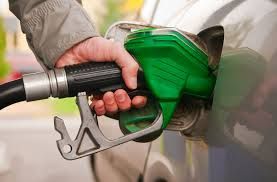
Double blow for petrol prices in South Africa
The South African rand started the new week squarely on the back foot, opening over R19 to the dollar after ending last week 2.5% weaker against the greenback.
This spells bad news for motorists in South Africa, who are already facing a massive increase at the pumps in September – between R1.30 and R2.50 per litre – thanks to rising global oil prices.
According to economists at the Bureau for Economic Research, the rand lost between 2% and 2.5% against major currencies last week. Mid-week the currency touched R19/$ for the first time in over two months – a position which carried into the new week.
Economists at Nedbank noted on Monday (14 August) that the rand’s weakness mainly reflects the impact of a stronger US dollar, which continues to drift higher; however, local factors are also at play.
“While the US dollar has been generally softer since the start of this year, with investors anticipating the end of the US rate hiking cycle as inflation eases, some uncertainties surrounding the peak in US policy rates and growing hopes of a soft-landing in the US economy appear to be supporting the greenback in recent weeks,” it said.
Domestically, the violent and disruptive taxi strike in Cape Town hurt sentiment, while the country’s disappearing trade surplus added further to the downside.
“Money market rates and bond yields were a touch lower. The JSE all-share index was flat as lower industrials eroded the gain by financials,” it said.
On the oil front, while spot prices have pulled back ever so slightly from the $87 a barrel mark last week – currently at $86 a barrel – it is far from a reversal.
The BER noted that the Brent crude oil price ticked up for the seventh consecutive week on high demand and contained supply.
A report by the International Energy Agency (IEA) stated that oil demand had reached a record high in June amid strong summer air travel, increased oil use for power generation and a rise in China’s petrochemical activity.
At the same time, however, OPEC production cuts created a very tight market.
The IEA expects the broader deficit in the oil market to support higher prices during the remainder of 2023.
According to Nedbank, oil supply fell by 910,000 barrels per day (bpd) in July to 100.9 million bpd, primarily due to the production cuts in Saudi Arabia.
OPEC+ output decreased by 1.2 million bpd to 50.7 million bpd, more than offsetting the impact of the rise in non-OPEC supply by 310,000 bpd to 50.2 million bpd.
The IEA revised its 2023 demand growth forecast to 102.2 million bpd, the highest level on record, from 102.1 million projected in July.
Double blow
The oil price and the rand/dollar exchange rate are the key contributors to local fuel pricing, and having both working against motorists means pain at the pumps in September.
The latest data from the Central Energy Fund (CEF) is already pointing to a massive petrol and diesel price hike on the cards for next month, with the daily snap shot indicating an under-recovery (thus increase) of petrol at around R1.30 per litre, and diesel at R2.53 per litre.
The international petroleum prices (reflecting rising oil) is the biggest contributor to the expected increase.
Contrary to the start of the month, the rand/dollar exchange rate is now contributing to the under-recovery, exacerbating the impact of rising oil prices.
News Category
- International retailers
- On the move
- Awards and achievements
- Legislation
- Wine and liquor
- Africa
- Going green
- Supplier news
- Research tools
- Retailer trading results
- Supply chain
- Innovation and technology
- Economic factors
- Crime and security
- Store Openings
- Marketing and Promotions
- Social Responsibility
- Brand Press Office
Related Articles

Empowering South African households through gro...

SPAR shares practical tips to beat food inflation

South African motorists could be paying up to R...

Big VAT changes on the cards


